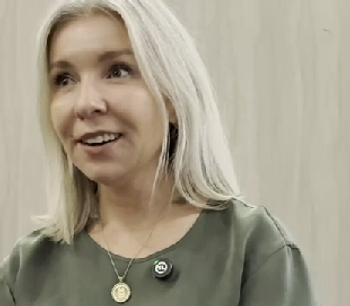Will Transgender Care Follow the Path of Abortion?
Gender-affirming care: medically necessary for mental health.
PSYCHIATRIC VIEWS ON THE DAILY NEWS
The attempt to politicize and legalize medical care continues. Following the Supreme Court strike down of Roe v Wade, the federal law allowing abortion for the last 50 years, a bill was introduced this past Friday in Congress that would bar gender-affirming care for transgender minors across the country.
Already, the state of Florida has banned Medicaid coverage of gender transition care for those of any age, using the controversial managed care business criteria of “non-medically necessary.”1 Today is Florida’s primary election day, perhaps with national implications, as abortion and LGBTQ+ rights having been hot topics of debate.
Yesterday, USA Today concluded that there was a false claim about Boston Children’s Hospital’s transgender care program.2 After sharing an informational video, the hospital and its involved physicians were threatened with violence. I am sure many connected to such care anywhere remember that doctors providing abortion were murdered and Salmon Rushdie was recently stabbed with the intent to kill.
Before I retired from clinical care in 2012, I had provided evaluation and care both of women seeking abortion in 1972 and anyone requesting gender transition care starting in the 1990s. Research supported my clinical sense that such care significantly improved the mental health of patients in both groups, including eliminating suicide risk. I also reported on both for Psychiatric Times™ over the years.
These recent legal developments regarding abortion and gender are posing major ethical dilemmas for psychiatrists and other physicians. The Preamble of our ethical principles states that our first priority is to patients, but secondarily to society, colleagues, and ourselves. So, if society bans certain medical procedures and care, does that eliminate our responsibility to people desiring them? Section 3 would suggest that it does not, as it states3:
“A physician shall respect the law and also recognize a responsibility to seek changes in those requirements which are contrary to the best interests of the patient.”
Now, how far should a physician and the representative professional associations ethically go to protest, redress, and educate the public about these legal changes if they are known to harm patients or would-be patients, when it is personally and organizationally risky to do so?
Dr Moffic is an award-winning psychiatrist who has specialized in the cultural and ethical aspects of psychiatry. A prolific writer and speaker, he received the one-time designation of Hero of Public Psychiatry from the Assembly of the American Psychiatric Association in 2002. He is an advocate for mental health issues related to climate instability, burnout, Islamophobia, and anti-Semitism for a better world. He serves on the Editorial Board of Psychiatric Times™.
References
1. Moffic HS. The Ethical Way: Challenges & Solutions for Managed Behavioral Healthcare. Jossey-Bass; 1997.
2. Hudnall H. Fact check: false claim about Boston Children’s Hospitals transgender care program. USA Today. August 22, 2022. Accessed August 23, 2022.
3. American Psychiatric Association.
Newsletter
Receive trusted psychiatric news, expert analysis, and clinical insights — subscribe today to support your practice and your patients.








